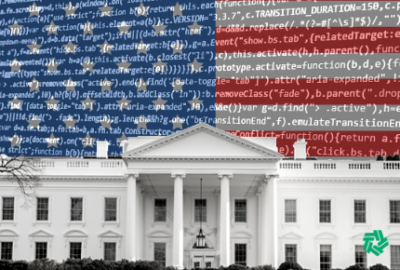VA AI strategy outlines data, workforce investments needed to improve veteran care
The Department of Veterans Affairs is testing whether artificial intelligence can assist clinicians in reviewing medical images, help veterans find services online...
The Department of Veterans Affairs is testing whether artificial intelligence can assist clinicians in reviewing medical images, help veterans find services online and empower the agency to proactively reach out to patients about their mental health.
To accelerate the agency’s AI capabilities while ensuring safety and trust, the VA adopted an enterprisewide AI strategy in late September. The strategy outlines steps VA is taking to upskill its workforce and partner with other agencies.
Gil Alterovitz, director of the VA’s National Artificial Intelligence Institute, said health care remains one of the hottest fields of study for AI because it allows patients and clinicians to better understand the wealth of data available to them.
“It can basically increase the capacity of clinicians and patients to identify health conditions, diseases, and therefore resulting in better outcomes by helping to find and detect them easier and more quickly,” Alterovitz said in an interview. “It can also increase the accuracy of identifying veterans that may be at risk for different conditions like mental health crises or things like that, that maybe they’re not coming into the doctor specifically for that.”
The VA is also looking at AI to improve patient care by helping clinicians zero in on aspects of medical images, all while ensuring the medical providers remain in the driver’s seat when it comes to decision making.
“Ultimately, the clinician, the patient working with the clinician, are then better informed to make decisions on what they would like to do for that care,” Alterovitz said.
The strategy identifies VA as a unique incubator for AI projects because it serves as the largest repository of health care data in the country and operates an integrated health care system of medical centers across the country.
The VA partnered with more than 20 different program offices to create the strategy, each outlining different possible use cases and needs when it comes to AI.
To support AI across the entire agency, the VA Data Commons, led by Scott DuVall, the director of the VA Informatics and Computing Infrastructure (VINCI), is offering new ways to conduct research and development using de-identified genomic and clinical data from patients.
Veterans, meanwhile, have also opted into sharing their data with the VA for genomics research.
“Veterans, because they understand the mission, they’re on their own volunteering to share that information, for example, for research,” Alterovitz said.
To further increase its capacity to develop AI applications, the VA is partnering with the Energy Department to leverage its supercomputing capabilities. It’s also investing in its human capital to support AI developments.
Alterovitz said VA is with several other agencies on a Talent Education Assessment Management System (TEAMS) meant to identify common traits or skills in federal employees that might indicate that they’d be successful working with AI.
The talent system helps address a growing demand for AI expertise in the federal government, while also recognizing that AI development requires a wide range of skill sets.
“Different areas of AI will have different types of knowledge that are needed. Are you doing AI acquisitions? That’s one type of knowledge and skills that you’ll need. Are you doing research? Are you using AI as a clinician? Each of those will have different needs,” he said.
This system, for example, helped a VA pharmacist develop the necessary skills to start developing AI applications. But the TEAMS effort, Alterovitz added, seeks to provide a common foundation for what agencies should look for in AI experts.
“If you’re looking for, let’s say a business major, you’ve got a business degree, an MBA. But until recently, there was no AI degree… so you can’t really hire someone who majored in AI,” Alterovitz said.
Alterovitz said the VA recently stood up an AI community of practice that allows individuals in and outside the VA to interact and share lessons learned. One common element is making sure agencies vet AI systems to ensure they protect sensitive data.
“The VA, in having this capability, in having all this data, we have this responsibility toward the veterans to protect the privacy, to ensure security around data access,” Alterovitz said.
Alterovitz said former President Donald Trump’s executive order on trustworthy AI in government helped set standards for how agencies should approach topics of transparency and ethics.
“It has that minimum bar, where if you’re not meeting that requirement, then you basically need to shut off that type of AI or, or not start that AI,” Alterovitz said.
While the VA has identified more than 170 ethical frameworks, Alterovitz said the agency’s strategy draws from the ethical applications in the AI framework from ACT-IAC.
“What we’ve done is taken it one step more and looked at within the VA. Are there specific ways that we could apply these trustworthy principles?” he said.
Copyright © 2025 Federal News Network. All rights reserved. This website is not intended for users located within the European Economic Area.
Jory Heckman is a reporter at Federal News Network covering U.S. Postal Service, IRS, big data and technology issues.
Follow @jheckmanWFED






